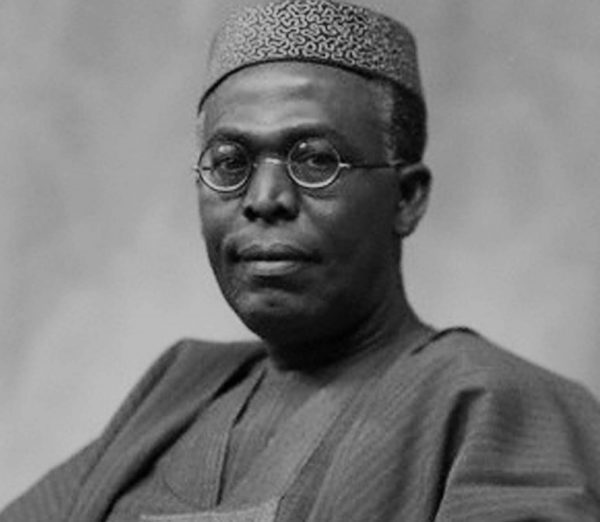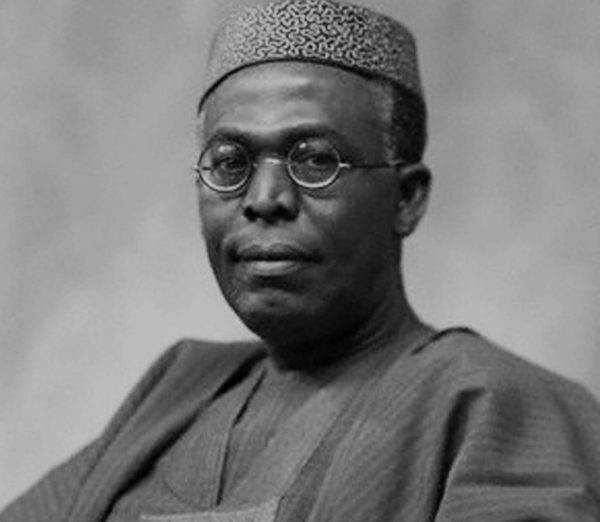Late Chief Obafemi Awolowo, is a man worth celebrating, for his numerous contributions to the development of the country, Nigeria, especially in the spirit of Independence Day celebration.
Obafemi Awolowo was a Nigerian nationalist and statesman, political leader, writer, and one of the principal persons who played a major role in the movement for the country’s independence. He was one of the three Premiers that ruled the country in the nineteenth century, being the first Premier of the Western Region, while Abubakar Tafawa Balewa and Nnamdi Azikwe were heads of the Northern and Eastern Regions respectively.
BIRTH, EARLY LIFE AND EDUCATION
“Awo”, as he was commonly called, was born to the family of Chief David Sopolu and Mrs Mary Efunyela Awolowo on March 6, 1909, in Ikenne, Remo, Ogun State (formerly known as Western State).
He attended St. Saviour’s School, Ikenne and Imo Wesleyan School, Abeokuta for his primary education. In the year 1920, when he was about 11 years old, Awo lost his father. This interrupted and delayed his education as he had to take on menial jobs to fend for himself and support his education. Despite the odds, however, and the numerous changing of schools, he proceeded to Wesley College (a teachers’ college) and became qualified as a shorthand typist. He later served as a clerk at Wesley College and as a Correspondent for the Nigerian Times.
Awolowo was one you could call a “serial entrepreneur” in modern terms. Besides being a schoolteacher and stenographer, he had been a taxi driver, moneylender, and produce buyer, amongst other things.
However, much later, he enrolled as an External Student at the University of London, where he was awarded a Bachelor’s Degree (Hons.) in Commerce in 1944, immediately after which, he enrolled to study Law. He was called to the bar by the Honourable Society of the Inner Temple on November 19, 1946.
POLITICAL CAREER
Awo’s political background can be traced to his involvement in various unions, as well as the founding of some of those unions. Some of the said unions include; the Nigerian Motor Transport Union, the Nigerian Produce Traders’ Association, Nigerian Youth Movement (NYM), and the Trade Union Congress of Nigeria.
An incidence that happened in the early 1940s soon paved his way into the world of politics fully. He had led a mass protest against the ban on exporting of palm kernel. Due to his deep level of activism and patriotism, the hearts of the people were won, as they believed that he could help them surmount the British.
In 1949, he founded “EgbeOmoOodua”and “Action Group” (AG), a political party also known as “EgbeAfenifere”, in 1951. Awolowo became the first president of the Action Group party, a party that believed the jinx of colonial rule could be challenged and more, even eradicated. In 1952, he became the Leader of Government Business and Minister for Local Government, and by 1954, he was elected the first Premier of the Western Region. In 1956, he was re-elected and he ruled until December 2, 1959, when he voluntarily gave up office after being elected into the House of Representatives.
Chief Awolowo questioned how the incumbent leaders ruled the nation and defined new alternatives to the displeasure of his opponents. In September 1963, he was charged for treasonable felony and sentenced to jail for 10 years. However, by July 1966, a new Federal Military Government ordered his release and Awolowo was made the Minister in charge of the Treasury and to provide political support as Vice Chairman in the Federal administration.
After the ban on civilians’ participation in politics was lifted in September 1978, Awolowo formed another party – Unity Party of Nigeria. He led the party until 1983 when it was banned alongside many other parties.
ACHIEVEMENTS
It is impossible to talk about the history of Nigeria and not mention “Chief Obafemi Awolowo”. He contributed immensely to the development of the country. Some of his achievements are:
- Introduction of the first free primary education programme in Africa
- Successful implementation of the first minimum wage policy in Nigeria, paying the workers in Western Nigeria double the amount their counterparts in other parts of the country received at the time
- Setup of first industrial complex at Ikeja and Nigeria’s first Commercial Housing Estates at Ikeja and Bodija, Ibadan
- Establishment of the first television station in Africa – Western Nigeria Television (WNTV)
- Pioneer of free healthcare for children up to the age of 18 in the Western Region
- He is also credited for coining the word “naira” for the Nigerian currency.
RECOGNITIONS AND HONOURS
Chief Obafemi Awolowo was honoured by various higher institutions of learning in recognition of his intellectual contributions.
He was Chancellor of the University of Ife (now Obafemi Awolowo University) from 1967 to 1975, and Ahmadu Bello University, Zaria (1975 – 1978).
In 1982, Chief Awolowo was conferred upon with the highest honour of the land – Grand Commander of the Federal Republic (GCFR).
He was also honoured with several chieftaincy titles, including Asiwaju of Yoruba, Asiwaju of Remo, Losi of Ikenne, Lisa of Ijeun, Apesin of Osogbo, Odole of Ife, Ajagunla of Ado-Ekiti, Odofin of Owo, and ObongIkpanIsong of Ibibio land.
The 100 naira note has his image drawn on it.
PUBLISHED WORKS
Chief Obafemi Awolowo authored several number of books. Some of them are: Path to Nigerian Freedom (1947), Awo – an Autobiography (1960), Thoughts on the Nigerian Constitution (1966), The People’s Republic (1968), The Strategy and Tactics of the People’s Republic (1970), and My March through Prison (1985).
Chief Obafemi founded and owned the Nigeria Tribune, Sunday Tribune, and Irohin Yoruba – all of which are newspaper companies.
FAMILY
He was married to Mrs Hannah Idowu Dideolu (nee Adelana) and they had five children together, namely Olusegun (1939 – 1963), Omotola, Oluwole Ayodele, and Tokunbo. One of his grandchildren is Mrs Dolapo Osinbajo, wife of the Vice President Prof Yemi Osinbajo.
Chief Obafemi Awolowo died at his home on May 9, 1987.
References: Obafemi Awolowo Foundation, Zaccheus Onumba Dibiaezue Memorial Libraries, InformationNG.


